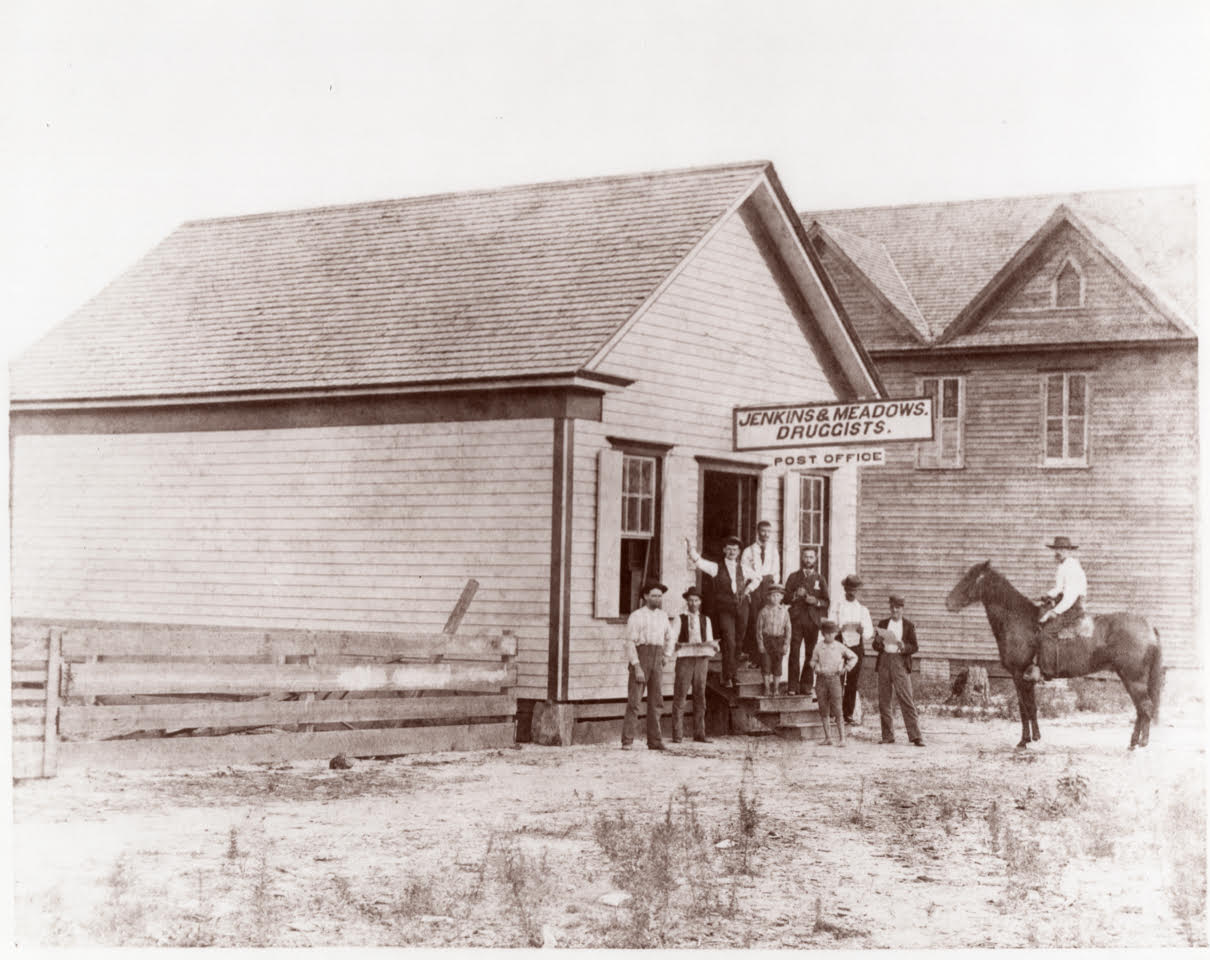
W. T. Jenkins and the Founding of a Community
Serious students of history would understand the challenges faced by the leaders who were involved in creating towns and cities from the woods and fields of South Georgia at the end of the nineteenth century and beginning of the twentieth. Only 40-50 years prior was peace in the area achieved with indigenous Indian tribes; the Civil War had ravaged the area and the populace, and agriculture had been forever changed by the ending of slavery and the appearance of the boll weevil. Reconstruction had been no friend to rural Georgia. Yet, all of these challenges were met, and progress was made, and the area became more attractive to new citizens, especially industrious people seeking land. Some of those early family names are still found in our community-McMillan, Thompson, McIntyre, McIntosh, and McNatt. Many of these settlers, including the McNatts, came from Robeson County North Carolina, where the naval stores/turpentine industry had been an important agricultural business. Also arriving from that area, probably in 1889, was the man credited with founding Vidalia as a city-Warren T. Jenkins, who was known as W. T. It is likely there was some prior connection between Jenkins and the McNatts, since W. T. Jenkins quickly turned to James “Jim” McNatt for advice and assistance in starting a naval stores venture. McNatt reportedly advised him to set up his operation adjacent to the location of a new railroad depot on the Savannah Americus and Montgomery rail line. Soon after W.T. began his work, along what would be named N.W. Railroad Ave., the S.A.M. management began calling this depot Jenkins Station. Jenkins and McNatt also entered into a partnership in the naval stores trade, as referenced in an 1897 article in the Atlanta Constitution. McNatt founded a bank in Ailey in 1900, and Jenkins was a founder and president of Vidalia’s first bank, The Citizens Bank, in 1901.
At some point during this formative period, the name Jenkins Station was changed to Vidalia. There are several theories about how this occurred, but it can be assumed that the S.A.M. Railroad was involved, as the influence and power of the railroads during this period was probably unmatched. The expansion of the railroads in the area was a primary factor determining which communities grew and which stood still. By 1917 other lines had connected with the S.A.M. at the Vidalia junction, and access in seven directions became a large element in the growth of the town. Another factor was the presence of Jenkins, and like-minded fellow citizens, who were involved in City leadership, serving on the City Council and providing growth-oriented management; Jenkins even married the first mayor’s daughter!
In the early 1900’s Jenkins was very busy in the business, civic, and religious affairs of the community. In addition to his banking activities, he also founded Sea Island Cotton Gin Manufacturing Co, which operated here into the early twenty-first century. Originally the company built long staple (Sea Island Cotton) gins, but branched out into all types of machinery work. He also began the Vidalia Cotton Oil Co., Jenkins Lumber Co., and owned at least one other naval stores operation, in Screven County. He and his wife had seven children, and he was a faithful member of the First Baptist Church. He was deeply involved in the construction of what we now know as the Historic Sanctuary. As related by his grandson, that endeavor “almost broke him”. According to his surviving family members, some speaking from personal interactions and some who related family lore, W. T. was an indulgent grandfather in his later days. After family dinners he would line his grandchildren up and walk down the line giving each a treat of sweetened biscuits. Toward the end of his life his health declined and he was generally confined to his home, but he enjoyed his family visits as he sat by the fire with his feet up on the grate. At that point in his very productive life, he had earned this opportunity.
Regarding Pine Crest, in 1907, the City of Vidalia purchased nine acres of land for the purpose of establishing a city cemetery. W. T. Jenkins was a councilman at the time, and The Citizens Bank, which he chaired, was the seller. Just as his efforts guided the formation of an incorporated City that we now know as Vidalia, Jenkins had a strong hand in the creation of our current city cemetery. He died in March 1944, and is buried in Pine Crest Cemetery. His gravestone is inscribed “Founder, City of Vidalia”. Certainly, he was not the only founder, as many others played key roles in the development of our City, but his contribution, from the earliest days, and in the strength of his participation in the growth of our City, make him first among equals of all Vidalia’s founding citizens.